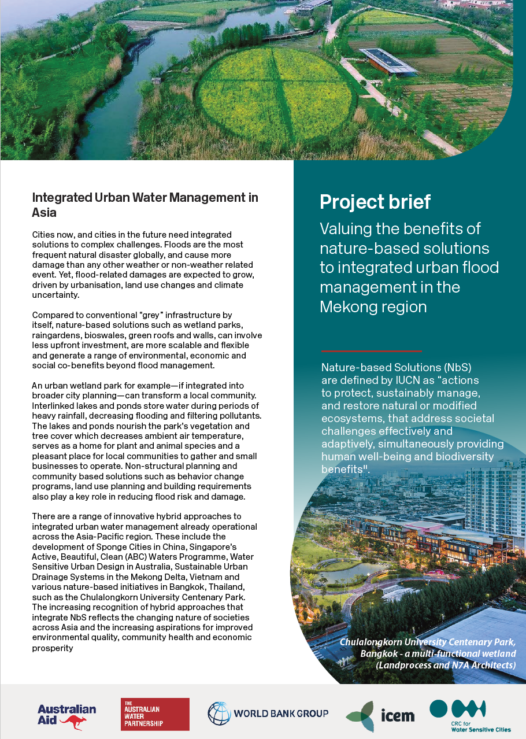Valuing the benefits of nature-based solutions for IUFM in the Greater Mekong Region – Project flyer
Summary
Floods are the most frequent natural disaster globally, and cause more damage than any other weather or non-weather related event. Yet, flood-related damages are expected to grow, driven by urbanisation, land use changes and climate uncertainty. Countries in the Mekong region, such as Thailand and Vietnam, are among the world's most exposed countries to flooding.
Compared with conventional “grey” infrastructure by itself, nature-based solutions (NbS) can involve less upfront investment, are more scalable and flexible and generate a range of environmental, economic and social co-benefits beyond flood management.
The Cooperative Research Centre for Water Sensitive Cities (CRCWSC) and the International Centre for Environmental Management (ICEM) worked in close cooperation with national government agencies in Thailand and Vietnam to identify and evaluate the full range of market and non-market benefits of NbS, as well as consider appropriate financing and investment models.
The project was established by the World Bank and the Australian Government Department of Foreign Affairs and Trade (DFAT), and was implemented by the Cooperative Research Centre for Water Sensitive Cities (CRCWSC) and the International Centre for Environmental Management (ICEM). It was supported by the Australian Water Partnership (AWP) as part of its Australia-Mekong Water Facility.
